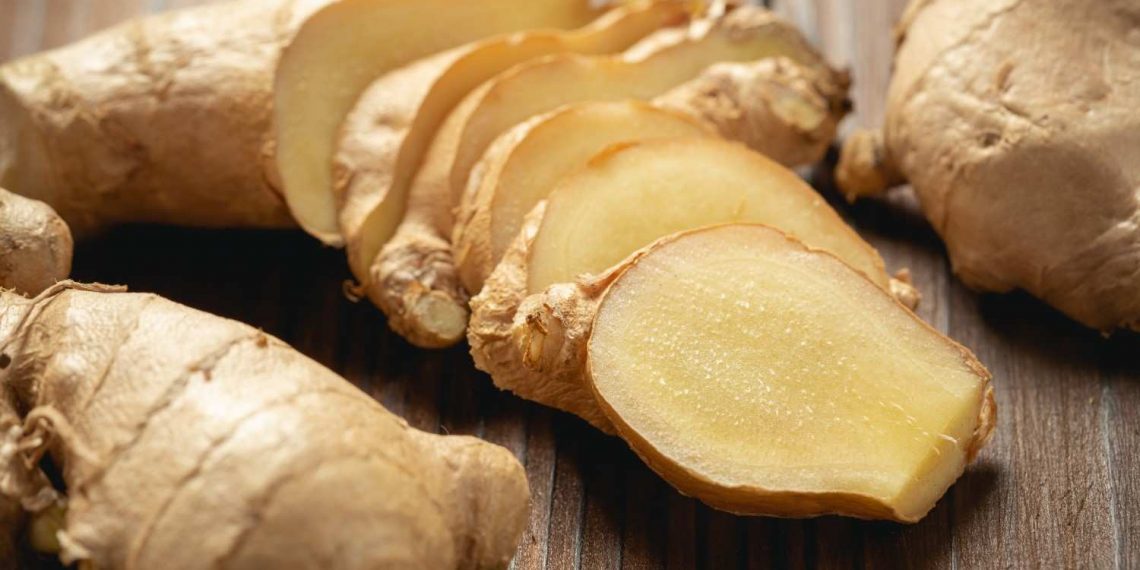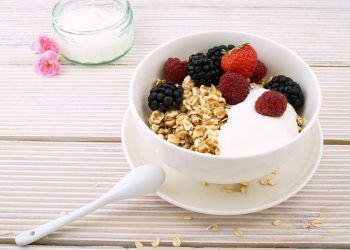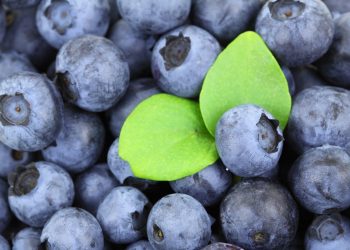10 Amazing Benefits of Ginger for Blood Pressure Control
Ever noticed how a warm cup of ginger tea can instantly uplift your mood? Or perhaps you’ve experienced the revitalizing kick of ginger in your favorite dish? Beyond its culinary uses, ginger has been celebrated for centuries in various cultures for its medicinal properties. Today, we dive deeper into its remarkable impact on blood pressure control, unearthing the potential benefits supported by scientific research.
Contents
- The Connection Between Ginger and Blood Pressure
- 1. Natural Vasodilator Effects
- 2. Anti-Inflammatory Properties
- 3. Regulation of Blood Sugar Levels
- 4. Antioxidant Effects
- 5. Enhanced Circulatory Health
- 6. Stress Reduction and Mood Improvement
- 7. Potential Weight Management Aid
- 8. Gastrointestinal Health Benefits
- 9. Synergy with Other Ingredients
- 10. Easy to Incorporate into Your Diet
- FAQs About Ginger and Blood Pressure
- Conclusion
- References
The Connection Between Ginger and Blood Pressure
Before we explore the specific benefits, it’s crucial to understand why ginger is linked to blood pressure regulation. Blood pressure, the force of blood against your arteries, can fluctuate due to numerous factors, including diet, stress, and physical activity. Managing it effectively is essential for overall health, as chronic high blood pressure can lead to serious complications like heart disease and stroke. Recent research suggests that ginger may play a significant role in maintaining healthy blood pressure levels, thanks to its bioactive compounds and anti-inflammatory properties.
1. Natural Vasodilator Effects
Ginger contains compounds like gingerol and shogaol, which have been shown to help dilate blood vessels. This means that when blood vessels widen, blood can flow more easily, potentially lowering blood pressure. A 2015 study highlighted this aspect, noting that ginger’s vasodilating effects resulted in significant reductions in blood pressure among participants after supplementation with ginger extract for two weeks [1].
2. Anti-Inflammatory Properties
Inflammation is a known factor contributing to hypertension. Ginger’s anti-inflammatory properties may help mitigate this issue. In a study published in the Journal of Cardiovascular Pharmacology, researchers found that ginger extract reduced markers of inflammation, subsequently aiding in lowering blood pressure [2]. This two-pronged benefit highlights how ginger can serve as not only a dietary supplement but also as a proactive approach to heart health.
3. Regulation of Blood Sugar Levels
Have you ever noticed that your energy can drop when blood sugar spikes? This fluctuation can also influence blood pressure. By helping regulate blood sugar levels, ginger indirectly supports stable blood pressure. A meta-analysis in 2021 discussed how ginger supplementation resulted in decreased fasting blood glucose levels and improved insulin sensitivity [3]. Lower blood sugar can mean less stress on your blood vessels, contributing to healthier blood pressure.
4. Antioxidant Effects
Oxidative stress is another factor that plays a significant role in hypertension. Ginger is rich in antioxidants, which help combat oxidative stress by neutralizing harmful free radicals in the body. One study published in Nutrition Journal emphasized that the antioxidant capacity of ginger could improve vascular function in populations at risk of cardiovascular disease, potentially reducing blood pressure as an outcome [4].
5. Enhanced Circulatory Health
Ginger may improve circulation, which can be beneficial for those struggling with high blood pressure. A study demonstrated that ginger helps facilitate blood flow by reducing viscosity in blood, allowing it to move more freely through the bloodstream [5]. Good circulation is vital, not just for lower blood pressure but also for overall cardiovascular health.
6. Stress Reduction and Mood Improvement
Stress doesn’t just affect your mental well-being; it can elevate blood pressure too. Ginger’s ability to enhance mood can be attributed to its positive effects on the nervous system. A study highlighted ginger’s capacity to reduce anxiety, suggesting that incorporating ginger into your diet might help reduce stress-induced spikes in blood pressure [6]. By calming the mind, ginger could aid in stabilizing blood pressure levels over time.
7. Potential Weight Management Aid
Excess weight is a key risk factor for hypertension, and managing it can have a profound impact on lowering blood pressure. Some research suggests that ginger may play a role in weight loss efforts by enhancing metabolic rate [7]. When combined with a healthy lifestyle, ginger could aid in achieving and maintaining a healthier weight, thereby reducing strain on the cardiovascular system.
8. Gastrointestinal Health Benefits
An often-overlooked contributor to overall well-being is gut health. Ginger is renowned for its ability to aid digestion and reduce gastrointestinal discomfort. A study found that ginger may help prevent bloating and gas, allowing the body to function optimally [8]. A well-functioning digestive system can contribute to better nutrient absorption and overall health, including cardiovascular wellness.
9. Synergy with Other Ingredients
Ginger becomes even more powerful when paired with other heart-healthy foods. For instance, turmeric, when combined with ginger, has shown enhanced anti-inflammatory effects. Research suggests that this combination may work synergistically to provide superior blood pressure-lowering effects compared to either alone [9]. It’s a reminder of the importance of a holistic approach to health—sometimes it’s about the whole dish rather than individual ingredients.
10. Easy to Incorporate into Your Diet
Perhaps one of the most compelling benefits of ginger is its versatility. Whether as a spice, tea, or supplement, adding ginger to your routine can be seamless. You might start your day with ginger tea, add fresh ginger to smoothies, or include it in stir-fries. This simple addition can make a significant difference over time.
FAQs About Ginger and Blood Pressure
Q1: How much ginger should I consume for blood pressure benefits?
A: While there is no universally recommended dose, several studies indicate that 1-3 grams of ginger per day may be beneficial. However, it’s essential to consult with a healthcare professional for personalized advice.
Q2: Are there any side effects of consuming ginger?
A: Ginger is generally safe for most people, but excessive consumption can lead to mild side effects like heartburn, diarrhea, or stomach upset. Moderation is key.
Q3: Can ginger replace my blood pressure medication?
A: Ginger should not replace prescribed medications. It may serve as a complementary therapy, but always consult your healthcare provider before making any changes to your treatment plan.
Q4: How can I incorporate ginger into my diet?
A: You can enjoy ginger in many forms—fresh in dishes, as a dried spice, in teas, or in supplements. Experiment with recipes and find what works best for you.
Conclusion
Integrating ginger into your daily life may not only add flavor to your meals but also offer a variety of potential benefits for blood pressure control. With its natural vasodilator effects, anti-inflammatory properties, and antioxidant capacity, ginger emerges as a valuable ally in the effort to maintain heart health. However, remember that while ginger can support your journey toward better health, it should complement—not replace—professional medical guidance.
By embracing this flavorful root, you’re taking a meaningful step not only in culinary exploration but also in supporting your overall wellness. As you sip your ginger tea or savor that ginger-infused dish, consider it a small yet impactful part of your health journey.
References
-
Khajehdehi P., & Mohammadi M. (2015). The effect of ginger on blood pressure and renal hemodynamics. Journal of Medicinal Food.
-
You Y., et al. (2012). The anti-inflammatory effects of ginger extract on cardiovascular complications. Journal of Cardiovascular Pharmacology.
-
Ryswyk E. et al. (2021). The effect of ginger supplementation on fasting blood glucose levels: A systematic review and meta-analysis. Journal of Nutrition.
-
Tadi P., et al. (2012). The antioxidant capacity of ginger extract: Effects on vascular function. Nutrition Journal.
-
Wohlfarth M., et al. (2014). The effects of ginger on platelet aggregation in healthy individuals. BMC Complementary and Alternative Medicine.
-
Tippett K., et al. (2016). Ginger for the treatment of anxiety: Clinical applications and implications. Journal of Alternative and Complementary Medicine.
-
Vahidinia A., et al. (2018). The effect of ginger extract on body weight. Clinical Nutrition.
-
Moshfegh A., et al. (1992). Foods commonly consumed in the United States: Composition and energy intake estimates. Journal of the American Dietetic Association.
-
Daily J., et al. (2019). The synergistic effects of ginger and turmeric on inflammation and cardiovascular health. Nutrients.
Get Your FREE Natural Health Guide!
Subscribe now and receive our exclusive ebook packed with natural health tips, practical wellness advice, and easy lifestyle changes — delivered straight to your inbox.















